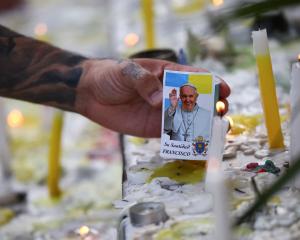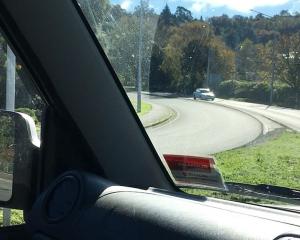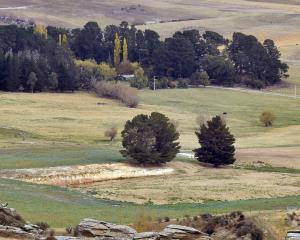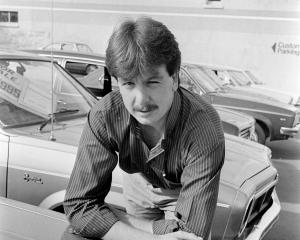
When all scores are set aside, it becomes sadly apparent that something in the Dunedin football scene has died.
The goliath that is the ‘Southern League’ has gobbled up all of the city’s good players, leaving spectators starved of the talents they’ve come to know and love.
The agony of missing out on these players is unmatched, a tragedy of ridiculous proportions. Take this time to pause your reading to lament if need be.
But don’t lament for too long, for in the wreckage something remains.
Possibly spurred on by their sorrow, a boisterous group of football punters have taken to yelling slightly questionable remarks from the sideline.
Through this relentless pursuit of football fandom, the ‘ultra’ culture of Dunedin football has been born.
Named ‘ultra’ for their tendency to go above and beyond the call of duty, these dedicated fans have provided a light in the darkness as football has looked to rise from the ashes in Dunedin.
Though I hate to admit it, this ‘ultra’ culture at football matches has developed predominantly under the banner of Northern AFC, a club drawing largely from the student contingent rooted in the valley.

The practice was even banned for a period after the ‘ultra’ crew began targeting individuals from the opposition, accelerating their banging as the player got on the ball.
Yes, the ultras are infamous, so much so that in a Northern vs Roslyn game, one of the Roslyn players found themselves celebrating a goal, not at the corner flag like you might expect, but in front of the opposition’s ‘ultra’ crowd jeering heartily in response.
Two-three years ago, Mosgiel AFC had an ‘ultra’ crew just as virile as this year's Northern contingent.
During matches, the Mosgiel ‘ultras’ would sing catered parodies in celebration of individual players within the team.
The crew's parody of ‘Gimme, gimme, gimme a man after midnight’ was a personal favourite of mine.

Beside the Northern and Mosgiel contingents, most other clubs in the premier Dunedin league bolster impressive ‘ultra’ communities, though most employ different tactics than their more boisterous Northern counterparts.
Though some may find all of these antics somewhat crude, there is something to be celebrated in the ‘ultra’ culture of Saturday football.
Is it an appeal to the roots of the game perhaps? Are the ‘ultras’ an embodiment of our own primordial sporting instincts, unable to release themselves for fear of societal scorn?
For both, a compelling argument could be mounted, explaining the recent resurgence of support in a Dunedin football community which, now more than ever, needs some love.
I am a Grants Braes AFC fan till I die, but unfortunately the club has not had a team in the premier Dunedin league for years.
Still, the Fletcher Cup team currently sports a small ‘ultra’ community of a few spirited individuals, showing the ubiquity of the phenomenon which has swept through Dunedin football at this crucial time.
In summary, I urge you to head along to a Dunedin premier game if you haven’t before.
If not for the football, head along for the community and primordial chaos which only the ‘ultra’ crews of Dunedin football can engender.
- - Hugh Askerud is a politics and religious studies student at the University of Otago










